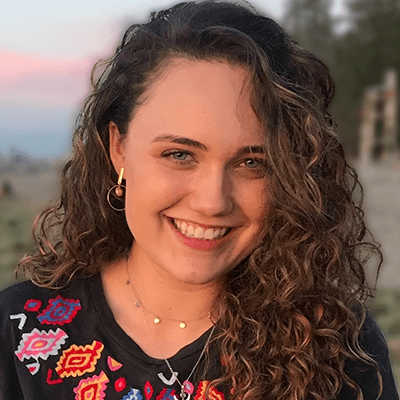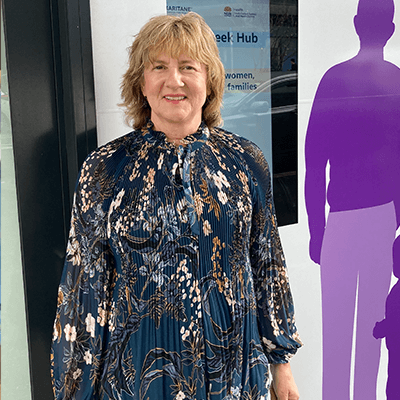Your role as a health professional is critical to the success of the National Cervical Screening Program in increasing participation in cervical screening and reducing the incidence of cervical cancer in NSW.
Women are more likely to undertake cervical screening at the recommendation of their health professional, or if their health professional has discussed screening with them.
Through providing a friendly, safe and sensitive environment, your support is fundamental in a woman’s decision to have a potentially life-saving Cervical Screening Test.
Cervical screening in general practice
Health professionals working within general practices perform around 85% of cervical screening in NSW.
As a health professional in a general practice, you are ideally placed to introduce and discuss the topic of cervical screening.
This is particularly important when engaging with women who are reluctant to screen, as well as those who may have forgotten they are overdue for their Cervical Screening Test.
Ask your eligible patients if they know about cervical screening and if they are up-to-date with screening. Offer opportunistic screening to eligible patients if they are due or overdue, or if they have never screened.
Nurses in general practice and community health
Female nurses have a vital role in cervical screening, as they often provide Cervical Screening Tests in locations where people may otherwise only have access to a male doctor.
Nurses also play an important part in reaching people from Culturally and Linguistically Diverse (CALD) communities, Aboriginal communities, older women, pregnant women and those who may have never had a Cervical Screening Test before.
Nurses in general practice and community health
Female nurses have a vital role in cervical screening, as they often provide Cervical Screening Tests in locations where people may otherwise only have access to a male doctor.
Nurses also play an important part in reaching people from Culturally and Linguistically Diverse (CALD) communities, Aboriginal communities, older women, pregnant women and those who may have never had a Cervical Screening Test before.
Meet nurses working in the NSW community

Jocelyn Clark, Women’s Health Nurse Specialist, South Eastern Sydney LHD
Jocelyn Clark is a Women’s Health Nurse Specialist in the Women’s Health Program, Equity and Prevention Service at South Eastern Sydney LHD. Her role entails both clinical and health promotion work, including consultations with women and people with a cervix for Cervical Screening Tests, postnatal checks, contraception advice, and general health and screening advice. She also conducts community education on women’s health. Jocelyn began this community-based role in 2023, having previously worked at the Royal Hospital for Women in areas such as critical care, midwifery, gynaecology and gynae-oncology, and Aboriginal health.
Read more about Jocelyn:
All this experience in a variety of settings has set me up to be the Women’s Health Nurse I am today. My critical care experiences have truly impacted on how highly I value health screening, promotion, and prevention work as I was witness to the consequence of women not being able to gain access to healthcare and/or screening at the appropriate time.
My journey has been character building and allowed me to work within my values as a person, particularly in my current role as equitable healthcare is the foundation of our Women’s Health Program. I believe that providing person-centred care, and educating women who may be going through the most vulnerable moments is the highest privilege of my role.
One of my favourite things about being a Women’s Health Nurse is hosting educational sessions and promoting cervical screening. Providing accurate information in an accessible way is vital for women to feel in control of their health journey and for understanding the ‘how’s and ‘why’s of cervical screening. An amazing outcome I’ve experienced is welcoming clients for a Test who have been referred by a family or friend who attended one of these sessions. Seeing women taking the information we provide and educating their own community is fantastic!
Absolutely! This often occurs for younger women who weren’t aware or had forgotten that they became eligible for cervical screening at 25 years of age, as well as during postnatal checks as part of a routine history. In some cases, women are far overdue for cervical screening due to financial barriers or limited access to a trusted health care provider. This is why I believe working with various communities across SESLHD is of utmost importance, for women to recognise our team, feel safe and trust us.
Jeanette Ball, Women’s Health Clinical Nurse Specialist, South Eastern Sydney LHD.
Jeanette Ball is a Women’s Health Clinical Nurse Specialist in the Women’s Health Program, Equity and Prevention Service at South Eastern Sydney LHD. Her role involves clinical, community and in-service education, and health promotion services, and she also a member of the NSW Aboriginal Cervical Screening Network.
Jeanette conducts Women’s Health Clinics in Rockdale and Wolli Creek, as well as outreach clinics to Maroubra Adult Community Mental Health Service and La Perouse Aboriginal Community Health. In a nursing career spanning 40 years, Jeanette has worked in women’s health for about two decades and been in her Women’s Health Nurse role for eight years.

Read more about Jeanette:
I am so passionate about Women’s Health Nursing. I enjoy that we have a lot of autonomy and balance between clinical and non-clinical work, as well as the flexibility in the time we spend with women. It’s a very comprehensive assessment that we do and while consultations are about 45 minutes, in some cases they can be longer. I could have someone disclosing about domestic violence or someone who doesn’t speak English and needs an interpreter, so I could be with them for 1.5 hours going through a women’s health assessment. And everyone has their story. It’s about just having that talk and helping make someone feel a bit lighter.
When it comes to education and events, it’s a very special feeling to talk about women’s health issues and cancer screening. Imparting that knowledge is a feeling that you’ve made a difference for a group of women and that’s what makes the job worthwhile.
It’s important to build rapport, give information and provide options for the Cervical Screening Test so they’re empowered to make their own decision. I usually explain what the test is, what it involves, and that at any given time they can ask for us to stop. It is also about talking through their feelings about the Test being uncomfortable and why they are concerned. Perhaps they’ve had an experience with the Test that was uncomfortable or painful, perhaps there has been sexual assault, or perhaps it is a fear of the result – we can look at how that is an important part of screening and by picking something up early we can treat it early.
I think a lot of women feel at ease going to a Women’s Health Nurse. It’s what we offer that makes a difference, having the time to provide information and have a conversation about their health and cervical screening. We are seeing more and more women coming to our service and I think that has a lot to do with increasing barriers to accessing a GP. Consultations and the Cervical Screening Test are free with a Women’s Health Nurse.
Our role is also important in bridging the gap for priority populations often under-screened or never screened, these include women and people with a cervix who are from culturally and linguistically diverse (CALD) backgrounds, are Aboriginal, homeless, affected by mental health and domestic violence, from LGBTQ+ communities, carers, and youth. I’ve been involved in several projects improving access to cervical screening for women from CALD backgrounds and Aboriginal women.








